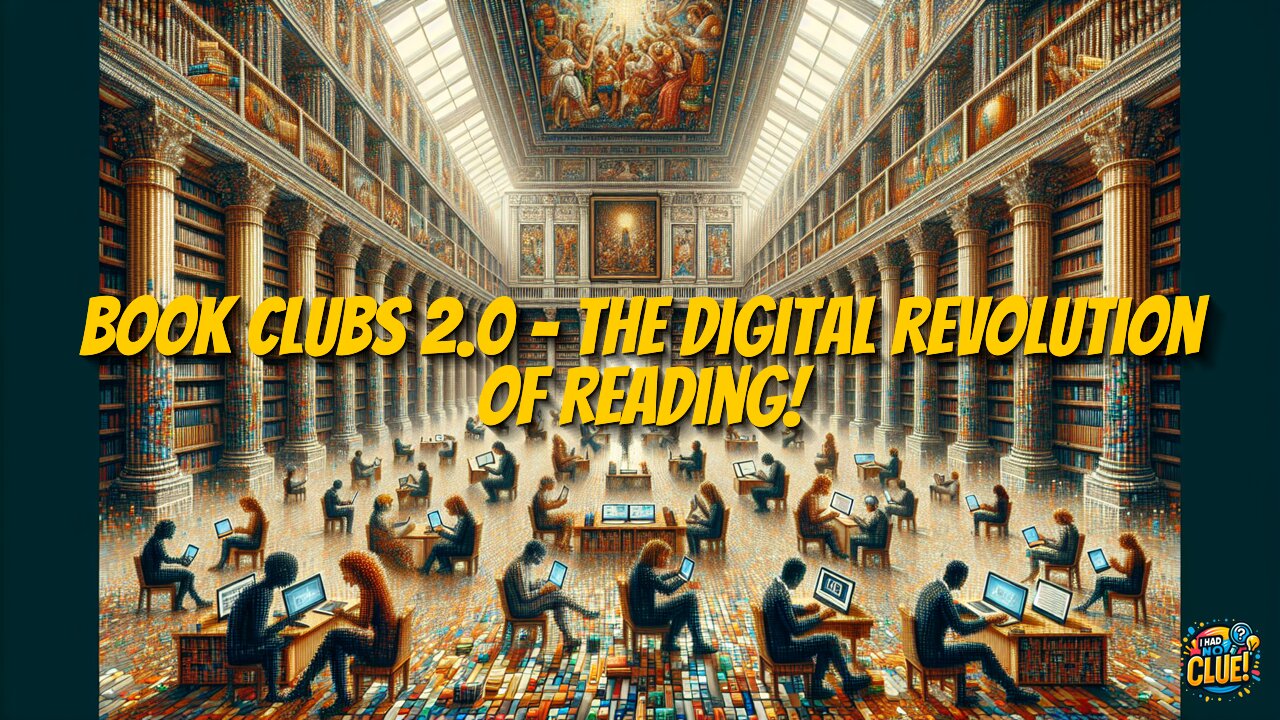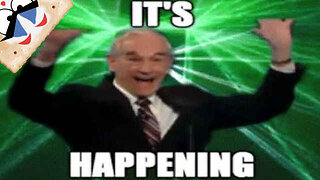Premium Only Content

Book Clubs 2.0 - The Digital Revolution of Reading!
https://www.ihadnoclue.com/article/1059389079725670401
The digital age has significantly changed how we consume literature, with social reading - the practice of reading alongside others and sharing experiences - experiencing a remarkable revival. In 2023, digital book clubs had a 47% increase in membership compared to pre-pandemic levels, challenging the traditional notion of reading as a solitary activity. Modern platforms like Goodreads, StoryGraph, Fable, Literal, and Readerly enhance the reading experience by facilitating real-time discussions, synchronized reading sessions, and interactive annotation features. Micro-communities' rise around specific genres, authors, or characters has further broadened literary engagement.
Emerging research suggests that social reading activates different neural pathways than solitary reading, potentially enhancing comprehension and retention. The ability to share annotations influences subsequent readers, shaping the reading experience across time and space. Regular participants in reading discussions demonstrate enhanced verbal reasoning skills, suggesting the social dimension of reading provides cognitive benefits beyond the texts' content.
The democratization of literary discussion on digital platforms has benefited authors from underrepresented groups who might receive limited attention in traditional review circles. Digital communities have also influenced literary canon formation, with books that resonate with these communities finding their way into academic syllabi and publishing contracts.
Emerging technologies can potentially transform social reading, with platforms beginning to incorporate natural language processing and augmented reality applications. Advanced AI integration is also promising, with early implementations allowing readers to engage with AI-generated perspectives on texts.
The rise of social reading suggests that meaning emerges through collective engagement with texts, redefining what a book can be and broadening our understanding of literacy. The future of reading appears increasingly collaborative, with the boundaries between author, text, and reader becoming more permeable. Digital platforms are revitalizing literary engagement for generations raised in networked environments, ensuring that reading remains relevant in an era of competing media.
-
 15:27
15:27
robbijan
1 day ago $2.40 earnedThe Emperor’s New Labubu & The Spiritual War Behind Everything
42.9K43 -
 LIVE
LIVE
GritsGG
17 hours ago36 Hour Stream! Most Wins 3420+ 🧠
719 watching -
 2:05:47
2:05:47
TimcastIRL
6 hours agoTrump FBI Raids John Bolton Amid Classified Docs Investigation | Timcast IRL
174K70 -
 2:15:23
2:15:23
TheSaltyCracker
6 hours agoFinally Someone Gets Raided ReEEeStream 8-22-25
81K212 -
 2:59:21
2:59:21
I_Came_With_Fire_Podcast
18 hours agoChina's New Ship Killers, EU Dead, Shooter HOAX, and The Missing Woman
16.1K2 -
 3:46:26
3:46:26
SynthTrax & DJ Cheezus Livestreams
15 hours agoFriday Night Synthwave 80s 90s Electronica and more DJ MIX Livestream OUTSIDERZ Edition
23.7K -
 3:39:16
3:39:16
VapinGamers
5 hours ago $0.07 earnedFortnite Friday with BrianZGame and Community! #1 Controller Scrub NA - !rumbot !music
9.83K -
 5:00:14
5:00:14
iCheapshot
6 hours ago $0.02 earnedTrying Out The Finals | Complete Newb
6.77K3 -
 1:59:06
1:59:06
HogansAlleyHero
8 hours ago💥2XP WEEKEND - BF6 REWARDS UNLOCK GRIND 💥
4.03K -
 1:11:19
1:11:19
The Mel K Show
8 hours agoMel K w/ Ian Trottier & John Donovan | High Stakes Treason: How John Brennan Compromised American Security for Millions | 8-22-25
28.6K15